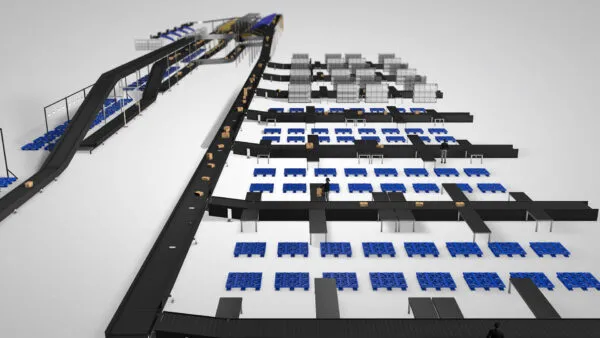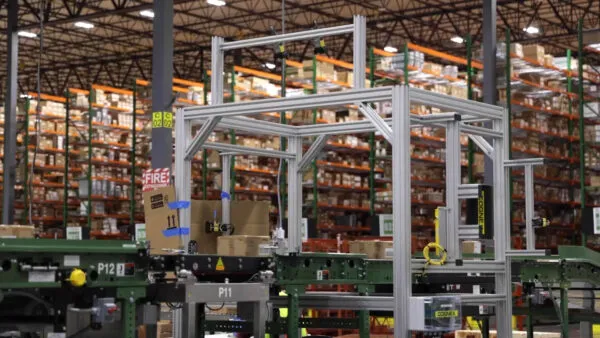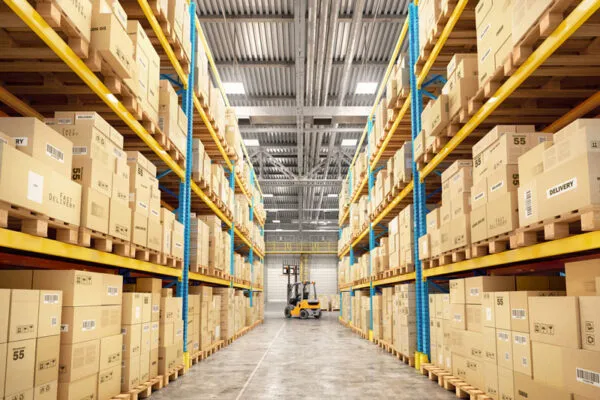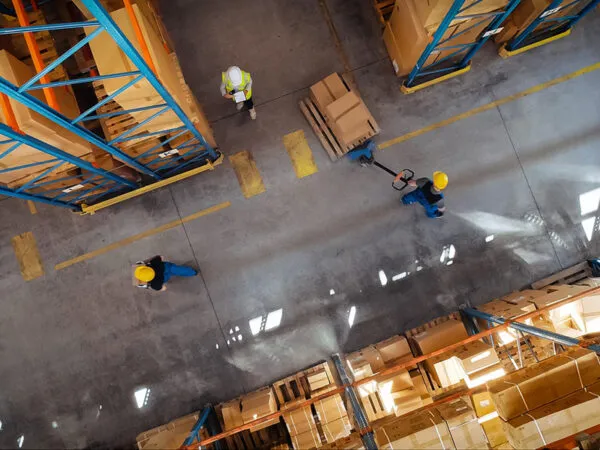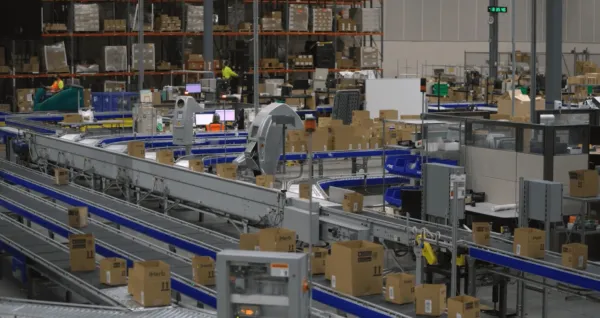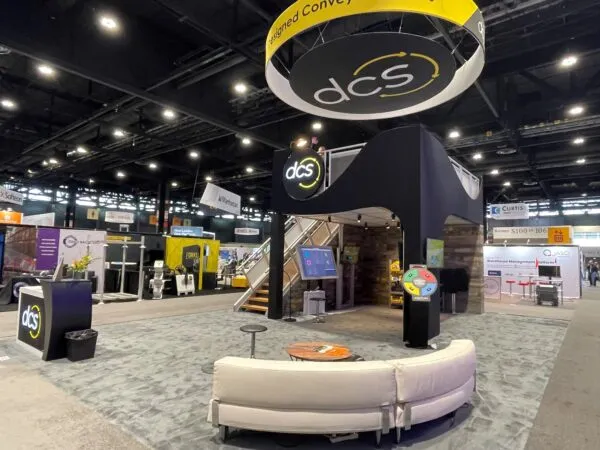If your warehouse or distribution center — or logistics network — is struggling to meet its service level agreements (SLAs) while controlling costs, it may be difficult to see why. After all, your primary focus is getting shipments out the door, on-time and in-full. When your operations are experiencing problems, however, it can be difficult to find the time to determine the cause(s). Engaging an outside consultant can not only help with identifying the factors contributing to your operation’s struggles, but also with obtaining recommendations for how to fix them.
Here, we take a look at the most common pain points in warehousing and distribution today. We’ll also explore the solutions a consultant can provide and the advantages of engaging a third-party, independent consultant — like Waller & Associates — to help your operations get back on track.
Top Warehousing and Distribution Pain Points
Currently there are two pain points facing operations that are driving organizations to utilize outside consulting services: labor shortages and high transportation costs.
Ongoing Workforce Challenges
The pandemic might be over, but the lack of available labor willing to work warehousing and distribution jobs continues. In the survey that informs the 2024 MHI Annual Industry Report, 52% of industry leaders cited the ongoing talent shortage as a top challenge. This is nothing new; workforce attraction, hiring, and retention has been either the first or second leading struggle in the industry for all 11 years that MHI has published the report.
Labor shortages in the industry are universal. Companies large and small, with one warehouse or dozens, and in a range of markets — retail, food and beverage, consumer packaged goods, electronics, health and wellness, third-party logistics (3PLs) and many more — all report an inability to adequately staff their operations. Without the necessary headcount, orders can’t be filled on time, shipments are delayed, and customers are unhappy. The resulting negative impact on business growth and profitability is prompting many operations to consider automated solutions. This is the primary reason why companies are currently engaging consulting firms.
Rising Transportation Costs
The second pain point faced by warehousing and distribution leaders is the skyrocketing costs of transportation. Moving inventory through the supply chain has become increasingly expensive, thanks to high demands and tight capacity across the freight industry. Parcel delivery, trucking, shipping, middle mile, last mile — getting items between nodes in the supply chain is significantly impacting the bottom line.
Working with a consultant to analyze a company’s existing network can help identify ways to cut those transportation costs. That analysis can help an organization decide if it needs fewer distribution centers or more, where those facilities should be located geographically, how to allocate inventory throughout the network, and whether or not changes might negatively impact customer service.
Consulting Services Address Challenges
Working with an independent, third-party consulting firm can help operations delve deeper into the issues they’re currently facing, as well as determine the optimal solutions to address those challenges.
Operational Assessments Support Increased Productivity
With regard to addressing labor shortfalls, an operational assessment can reveal a variety of opportunities for workforce and process optimization. This type of analysis involves examining the current design of the facility to determine if the layout is impeding flow.
Operational assessments also consider end-to-end handling processes. The consultant investigates all labor driven workflows, from inbound receiving to putaway, to picking and replenishment of forward pick zones, to order consolidation, then through packout, sortation, and outbound shipping. Inefficiencies in handling, bottlenecks inhibiting flow, and wasted or repetitive steps are just a few examples of activities that can negatively impact productivity — and therefore require more workers to complete a day’s tasks.
Operational assessments also take into account any workflow orchestration software currently in use. For example, a warehouse management system (WMS) or a labor management system (LMS) may be in place, but not used to its maximum effect. This analysis can identify ways to better use existing systems, or if they should be added or updated.
The typical operational assessment project takes between six to eight weeks. It concludes with short-, medium-, and long-term recommendations for a facility with regard to the types of automation solutions that will yield an optimal improvement in throughput, filtered against the company’s stated objectives for the project.
These considerations include the time to achieve a return on investment (ROI). While historically most companies hoped to achieve a payback within three years to cost justify a capital investment in automation, today’s workforce situation is often stretching that objective to five years. The additional time is an acknowledgment that current labor challenges are unlikely to improve; therefore, an investment in automation is the best way to achieve desired growth objectives.
Just as labor shortages are impacting companies of all sizes, operational assessments can benefit a range of businesses — from small to large. As the cost of automation continues to decrease, the technologies themselves are increasingly affordable and accessible to operations, no matter their size. Small facilities can benefit just as much as larger ones from an operational assessment that identifies the optimal automation solution.
Logistics Network Design Evaluations Reduce Transportation Costs
When evaluating a company’s current logistics network design, a consultant examines a range of factors. These include the locations of all current facilities, the inventory stored in each, the distance between the operations, and the transportation costs associated with moving freight from port to inbound receipt to dissemination throughout the network. The analysis also examines outbound transportation costs, including those associated with wholesale fulfillment, replenishment shipments to brick-and-mortar stores, direct-to-consumer shipments for e-commerce, or a combination of the three.
Based on the collected information, the consultant can create and model a variety of different possible scenarios to gauge the impact of network changes. These might include consolidating multiple locations into a single, centralized facility; expanding the network to include one or more additional locations with a reallocation of inventory; or other alternatives.
In general, a logistics network design project is a 12-week engagement. Additionally, both types of analysis — operational assessments and logistics network design evaluations — can be performed at the same time.
Advantages of Engaging Waller & Associates
Working with an independent, third-party consultant offers operations a variety of benefits. Consulting firms like Waller & Associates, a subsidiary of Designed Conveyor Systems (DCS), are unaffiliated with original equipment manufacturers (OEMs) of material handling systems and automated technologies. That is, they are free to recommend the optimal solution — regardless of its brand — because they have no financial incentive from an equipment manufacturer to do so.
Certain consulting firms, such as Waller & Associates, bring highly focused, specialized expertise in material handling, supply chain, distribution, and warehousing to their engagements. This sets them apart from large consulting practices, such as those affiliated with the Big 4 accounting firms and other international organizations. Everyone on the Waller & Associates team has more than 30 years of experience in the industry, and they personally conduct each evaluation. There are no inexperienced junior associates on staff.
Additionally, the Waller & Associates team has a diverse background and range of experiences in supply chain optimization across multiple vertical markets. This includes work in the government sector as well. Consulting clients benefit from unique application of creative solutions informed by a diverse portfolio of successful project outcomes.
Finally, although Waller & Associates is a subsidiary of DCS, the firm remains 100% independent. Clients are not obligated to work with DCS for technology acquisitions or integration services — although they certainly can if they prefer a one-stop-shop solution.
Address Your Pain Points
Ready to address your warehousing and distribution challenges? Considering an investment in automation, or wondering how to reduce transportation costs? With a combined 90-plus years of hands-on expertise, the Waller & Associates’ consultants are dedicated to helping clients in both commercial and government sectors achieve higher levels of operational performance, efficiency, and profitability. Connect with Waller & Associates today to learn more about operational assessments and logistics network design evaluations.
